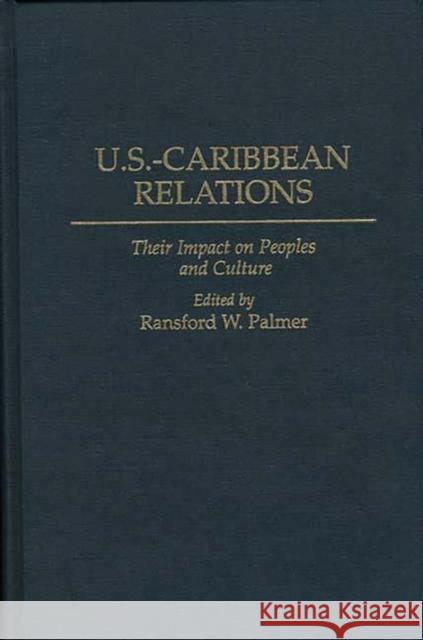U.S.-Caribbean Relations: Their Impact on Peoples and Culture » książka
U.S.-Caribbean Relations: Their Impact on Peoples and Culture
ISBN-13: 9780275958596 / Angielski / Twarda / 1998 / 176 str.
Challenging the traditional focus on economic development, this book emphasizes the importance of cultural development in any development strategy. It examines the interaction of the American and Caribbean populations and the influence that interaction has had on their perceptions of each other and of themselves. Although trade is an important component of U.S.-Caribbean relations, the book underscores that population movements and their attendant cultural influences are powerful factors in those relations.
While trade, population movements, and security considerations have traditionally been the three main components of U.S.-Caribbean relations, the chapters in this contributed book emphasize the importance of a fourth--culture. U.S.-Caribbean relations influence and are influenced by Caribbean perceptions of themselves and of the United States; perceptions that are being transformed by American telecommunications, the movements of American tourists to the Caribbean and of Caribbean immigrants to America. Out of these interactions, a new Caribbean cultural identity is emerging, one that will influence the traditional relationship between the U.S. and the Caribbean.











